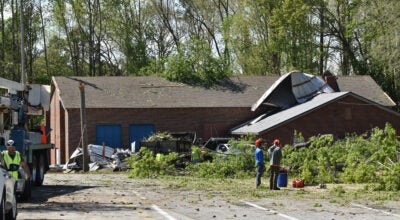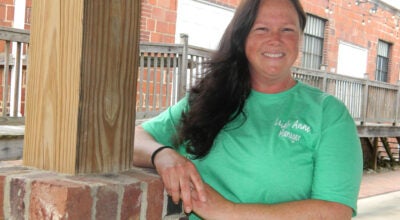Clashes in Istanbul extend into night in Taksim
Published 12:00 am Wednesday, June 12, 2013
ISTANBUL (AP) — Riot police fired tear gas, water cannon and rubber bullets in day-long clashes that lasted into the early hours Wednesday, overwhelming protesters who have been occupying Istanbul’s central Taksim Square and its adjacent Gezi Park in the country’s most severe anti-government protests in decades.
The crisis has left Prime Minister Recep Tayyip Erdogan looking vulnerable for the first time in his decade in power and has threatened to tarnish the international image of Turkey, a Muslim majority country with a strongly secular tradition, a burgeoning economy and close ties with the United States.
Thousands of police moved in early Tuesday, pushing past improvised barricades set up by the protesters who have swarmed through the massive square and park in their tens of thousands for the past 12 days.
Police fired repeated rounds of tear gas that rose in stinging plumes of acrid smoke from the square in running battles with protesters hurling fireworks, bottles, rocks and firebombs. In a cat-and-mouse game that lasted all day, the police repeatedly cleared the square, only for demonstrators to return.
More than 30,000 converged on the square again as dusk fell and were repelled by water cannon, rubber bullets and tear gas after Istanbul’s governor, Huseyin Avni Mutlu, said the police came under attack by “marginal groups.”
The area reverberated with the echoes of exploding tear gas canisters into the night, while volunteers ferried dozens of injured people to waiting ambulances.
Early Wednesday, police surrounded Gezi Park, where protesters had set up a tent city, firing repeated rounds of tear gas into the area. Protesters scrambled to flee from the choking chemicals, abandoning tents and belongings. Many returned after the riot police had passed.
A peaceful demonstration against the park’s redevelopment that began more than two weeks ago has grown into the biggest test of Erdogan’s authority, sparked by outrage over a violent police crackdown on May 31 against a peaceful sit-in in the park.
The unrest has spread to 78 cities across the country, with protesters championing their objections to what they say is the prime minister’s increasingly authoritarian style and his perceived attempts to impose a religious and conservative lifestyle on a country with secular laws — charges he rejects.
Four people have been killed, including a policeman, and about 5,000 have been treated for injuries or the effects of tear gas, according to the Turkish Human Rights Foundation.
Gezi Park, with its thousands of camped-out demonstrators young and old, has become the symbol of the protests. Both the governor and the police initially promised that only Taksim Square would be cleared, not the park.
But late into the night, the governor indicated a more muscular police sweep was imminent.
“We will open the square when everything normalizes in the area, and our security forces completely control the area,” Mutlu told A Haber news channel. “Our children who stay at Gezi Park are at risk, because we will clean the area of the marginal groups,” he said, referring to what the government has said are troublemakers among the protesters.
“We won’t allow our government to be seen as weak,” Mutlu said.





